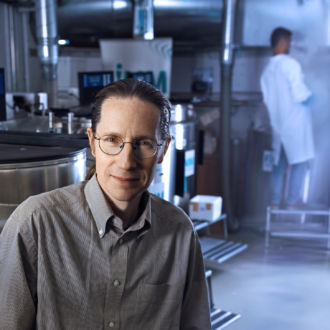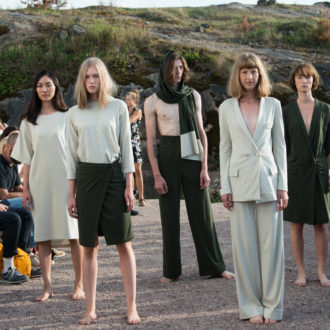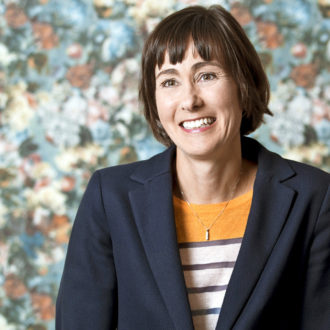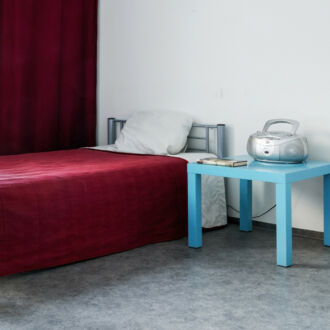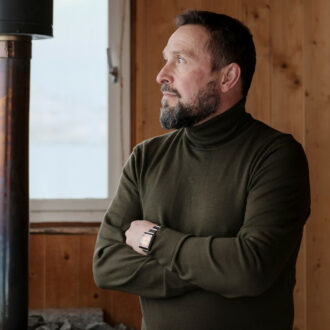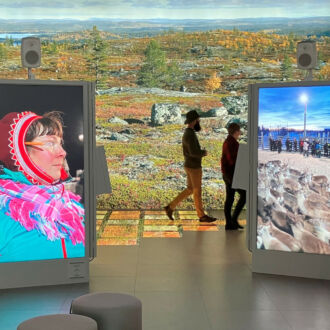Durat, Woodly and Sulapac are three Finnish companies that are responding to the global demand for ways to cut plastic use.
Woodly and Sulapac replace plastic packaging with wood-based materials, while Durat mixes a sizeable percentage of post-industrial recycled plastic into its product. Keep reading to see how they do it.
Sulapac aims for top brand profile
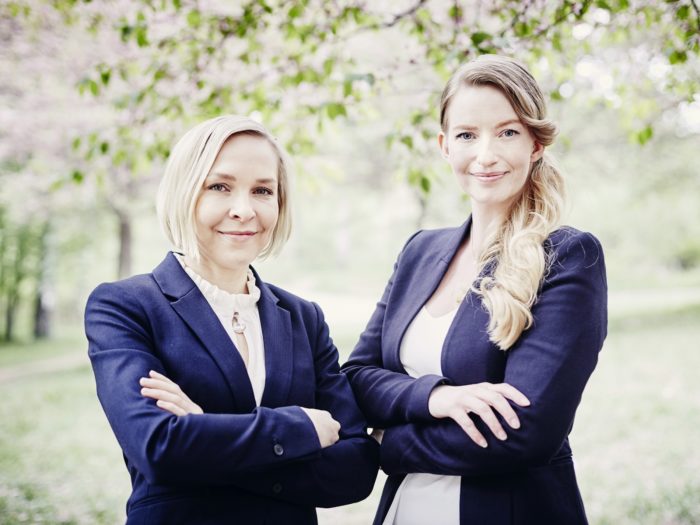
“Many Finnish companies are pioneers for sustainability,” says Suvi Haimi (left), who cofounded Sulapac together with Laura Tirkkonen-Rajasalo.Photo: Sulapac
Biochemists Laura Tirkkonen-Rajasalo and Suvi Haimi founded Sulapac in response to a startling revelation: if the tide of plastic waste in the world’s oceans cannot be turned, there will be more plastic than fish in the sea by 2050.
“We wanted to use our biomaterial expertise and start solving the global plastic waste problem,” says Haimi. “We set out to develop a new material made of wood and natural binders to replace traditional plastics.”
Rather than producing it in granule form, they launched it as a finished product. The aesthetic appeal of the Sulapac jar, now part of the company’s Nordic Collection, drew the attention of established cosmetic and luxury brands. That appeal derives from the strength, versatility and pleasing finish of the material, which is recyclable by industrial composting.
“Our products and material have gained a lot of recognition in terms of awards and media coverage, and we have been fortunate to collaborate with leading global brands such as Chanel and Stora Enso, which adds to our credibility,” says Haimi.
“Many Finnish companies are on the right track for sustainability, and there are true pioneers among them. We are proud to collaborate with some of the leading Finnish brands including Fazer, Berner, and Lumene to introduce new, sustainable solutions. Our vision is to make Sulapac the number one sustainable material that is a substitute for plastic.”
Woodly builds on carbon-neutral versatility
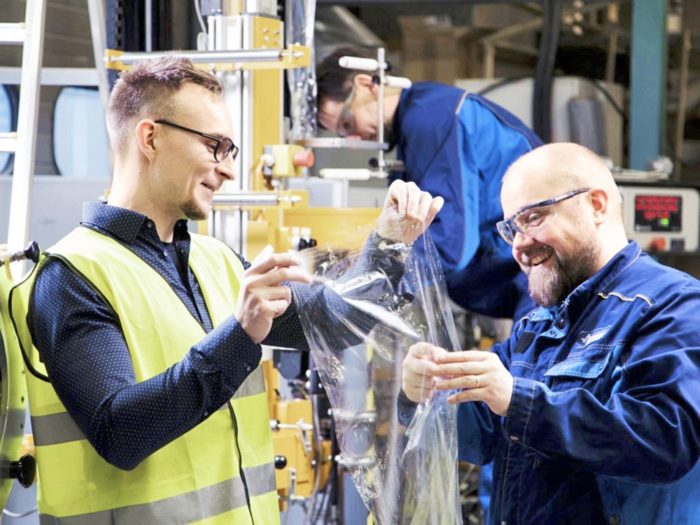
Woodly is a unique wood-based, transparent packaging material. Photo: Woodly
Here’s a simple ecological paradox: food waste is a growing global problem. One solution is to prolong the shelf life of the food with packaging made from oil-derived plastics, but this generates more CO2 emissions. Motivated by this dilemma, Woodly was created in 2011 to develop carbon neutral, recyclable film packaging solutions, under the umbrella of Finnish solutions agency Seedi. The signing in 2019 of a strategic agreement with Wipak, one of the world’s biggest flexible packaging companies, was a significant milestone in Woodly’s progress.
“Woodly is a very versatile and unique wood-based, transparent packaging material which can be used in various applications, in products or in packaging,” says CEO Jaakko Kaminen.
The prime aim is carbon neutrality, and Woodly’s recyclability is part of that, he says. Similar products are under development elsewhere, but Woodly’s scalability and versatility for combatting climate change are key assets that can set it apart.
“We are confident that we can successfully enter the market,” he says. “Our strategy is to communicate the material directly to the consumer. When the consumer recognises the Woodly brand, that will be the game changer.”
Durat’s solid solution for waste
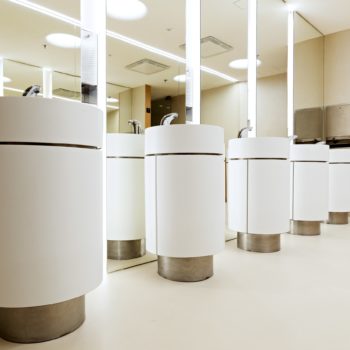
Durat’s Torni washbasins are made partly from waste.Photo: Durat
Durat’s solid surface product is partly made from waste − and totally recyclable.
The durability, strength and solidity of Durat set it apart from other plastic innovations.
“Durat was developed in the 1990s,” says CEO Heikki Karppinen. “The founders developed the material from scratch and used waste materials from local suppliers.”
He says it is the only solid surface product made with recycled plastic content.
“The waste material is post-industrial waste from local sources,” he explains.
“We process the waste, granulate and mix it with the Durat material. Using waste material not only gives a new life to waste plastic but reduces the need for virgin raw materials. We use about 30% of recycled content in the material and the product is itself 100% recyclable.”
Custom tabletops and vanity units are the main finished products, which can be found in restaurants, retail spaces, hotels and public bathrooms.
“We also supply sheets and sinks to be fabricated locally. The interest for recycled content materials has gone up dramatically in the last two or three years. We believe that in the next ten years or so, the whole construction and design industry will transform to a circular economy model.”
By Tim Bird, ThisisFINLAND Magazine 2020

